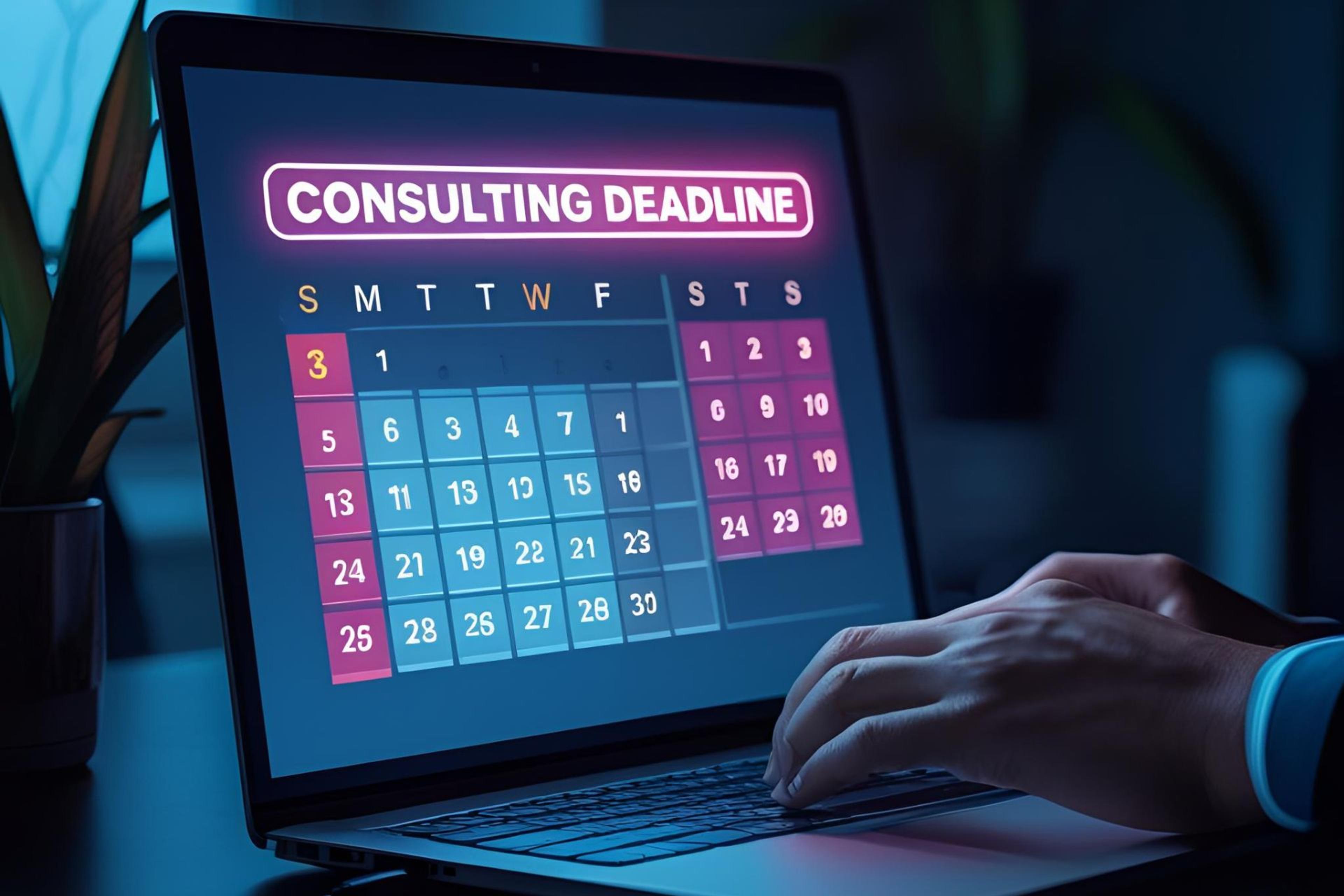A Comprehensive Guide to MBB: McKinsey & Co., Boston Consulting Group, and Bain & Co.
A guide to get you started on your MBB applications, including what makes each consulting firm unique, interview tips, sample questions, and other expert resources.
Posted June 13, 2025

Table of Contents
Consulting has become an increasingly competitive industry due to its vast exit opportunities, incomparable work experience, and high entry-level salaries. The application process is complex and requires significant preparation.
Nowadays, there are many global management consulting firms and each has its unique advantages, values, and interview quirks. One of the most important questions that each consulting firm will want its applicants to answer is “Why us?” For this reason, we’ve put together a guide to help you stand out during your McKinsey & Company, Boston Consulting Group, and Bain & Company (MBB) consulting recruiting.
MBB Similarities
At the high level, all of the MBB firms are essentially doing the same thing: helping solve clients’ most pressing problems and answering their most strategic questions. There are several other things that these three firms also have in common. First, the industries that they operate in are relatively similar. Second, historically, all firms required a substantial amount of travel; typically, a consultant would be at a job site Monday through Thursday and then back at the home office on Friday. Since 2020, the demanding travel schedule has changed significantly; right now, most consultants have a hybrid travel model, but we will see how things continue to evolve in the next few years. Third, the salaries for specific positions are roughly the same. And lastly, consultants at McKinsey, Bain, and BCG will all interact with high-profile companies and have access to very good exit opportunities.
The real specificities come at the regional level. Different offices will have different specializations and it’s important to understand what they are, and which one you want to work for so you can articulate it in your interview. Below you will find a breakdown of each firm, including what makes each different, company-specific interview advice, and general tips.
McKinsey & Company
Quick Facts
- Founded: 1926
- Revenue: $10.6 Billion
- Employees: 30,000
- Headquarters: New York, NY
- Global Presence: 133 cities in 67 countries
What Makes McKinsey & Co. Unique?
McKinsey & Co. is a strategy consulting firm, meaning it helps clients with high-level initiatives like deals and acquisitions, market expansion, revenue optimization, cost minimization, and more. From early on, McKinsey emphasized the importance of functional expertise in specific industries. They hired individuals with deep knowledge and experience in a specific area in order to provide the best solution to the client. This mindset continues today and the firm continues to stress that regardless of location, McKinsey employees should reach out to one another to tap into expertise in order to best solve the intense problems they are hired to tackle.
Compared to the other firms, McKinsey spends much more time training its employees. Instead of trying to teach people what to do, it attempts to provide a set of fundamental skills that can be used to improve ways of thinking and problem-solving.
The feedback culture at McKinsey is another differentiator that is highly encouraged and used to help employees constantly elevate their work quality and professional development. At least 20 minutes will be put aside every two weeks for a feedback session, but informal feedback may be given at any point. Also, this is expected to go both ways, from head managers to entry-level business analysts and back up.
McKinsey is also committed to a national staffing model, meaning that employees out of any regional office can be assigned to work on a case in any city. So, while the regional concentration might affect which industry the projects are in, it does not necessarily impact where those projects will be located.
McKinsey Values
There are three main values that remain at the core of McKinsey & Co.'s processes: first, a culture that is “values-driven”; second, strategies that are built around long-term success; and last, an environment that brings in exceptional employees. The values that McKinsey remains committed to were in large part established by Marvin Bower, the Managing Director from 1950 to 1967. They include professionalism and putting the client’s interests first, improving clients’ performance significantly, and fostering a non-hierarchical, inclusive, and diverse meritocracy. McKinsey places a lot of importance on sustaining these values and has even demarcated an entire day—known as “Values Day”—for its employees to honor in June.
McKinsey Industries
- Advanced Electronics
- Aerospace & Defense
- Agriculture
- Automotive & Assembly
- Chemicals
- Consumer Packaged Goods
- Education
- Electric Power & Natural Gas
- Engineering, Construction, and Building Materials
- Healthcare Systems and Services
- Financial Services
- Life Sciences
- Metals and Mining
- Oil & Gas
- Paper, Forest Products, and Packaging
- Private Equity and Principal Investors
- Public and Social Sector
- Real Estate
- Retail
- Semiconductors
- Technology, Media, and Telecommunications
- Travel, Logistics, & Infrastructure
McKinsey Office Locations
- New York
- Boston
- Chicago
- Washington DC
- Johannesburg
- San Francisco
- Singapore
- Dubai
- Houston
- Paris
- and more…

Expert Advice
“I can't think of a better place to start your career than McKinsey. One of the biggest benefits is being surrounded by such a high caliber of talent from day one. I was blown away by how consistently impressive my colleagues and managers were: these people weren't just smart, but also incredibly kind, thoughtful, and professional. In addition to the hands-on training and mentorship you receive from your manager, you will also "learn through osmosis" by being exposed to sharp minds and creative thinkers day in and day out.

Comparing McKinsey to other top consulting firms, two big differences stand out. The first is McKinsey's size and scale. With thousands more employees than BCG or Bain, that also means McKinsey serves more clients in more industries across a wider range of topics than any other top strategy consulting firm. While some practices are comparatively deeper than others, you'd be hard-pressed to find a major company or organization globally that McKinsey hasn't served in some way, shape, or form.
The second key difference is the level of ownership you're given as an entry-level analyst. The team structure at McKinsey has four layers compared to BCG and Bain's five, meaning you're one level closer to your manager and the partner on your project. From a staffing perspective, a post-undergrad Business Analyst is treated exactly the same as a post-MBA Associate at McKinsey. That means that from day one, you'll have greater ownership, higher expectations, and more opportunity for impact, leading to a faster development trajectory than you'd get anywhere else.”
- Camden R., HBS MBA, McKinsey Consultant and Recruiter
Interviewing at McKinsey & Co.
Anyone interviewing at McKinsey will have to pass several levels of screenings and interviews. It does not require a cover letter, so dedicate time to making sure your resume is in the condition to pass the first filter and land you an interview. If it is found satisfactory, you’ll move ahead to the Problem Solving Test (“PST”). If you pass that, you’ll have two rounds of interviews, both of which will consist of a case interview and a personal experience interview. Then, you will hear if you have received the offer or not.
The different things that McKinsey is looking for in its interviewees are quantitative and problem-solving skills, creativity, and communication. In the PST, you’ll be expected to outline and solve the problem in a structured and formulaic way, and you’ll likely be required to do mental math. The case interviews will test how you can brainstorm creative and strategic solutions to real-world problems. While you aren’t expected to have industry-specific knowledge, you are expected to understand basic business concepts. Finally, the experience and behavioral interviews will help determine your ability to communicate effectively. Because consultants must constantly interact with clients, communication and interpersonal skills are very important.
McKinsey’s Personal Experience Interview (PEI)
The PEI is McKinsey’s spin on the behavioral interview portion of the consulting application. The biggest difference is that rather than asking several different fit questions, McKinsey likes to dive deep into one question. For example, take one of the sample interview questions, “Talk about a time when you achieved something out of your comfort zone.” After you initially answer, instead of moving on to a different topic, the interviewer will ask a series of follow-up questions like:
- What impact did your achievement have?
- What did you learn from the experience?
- How will it benefit you in the future?
- How did your comfort zone change as a direct result of the achievement?
In the last few years, McKinsey has also begun to include questions on embracing change in the PEI interviews. Have personal experiences and talking points prepared on how you have successfully navigated change in order to do well on this topic. There are two other things to be aware of as you prepare for your PEI interview. First, be careful of repeating the same stories with multiple interviewers. Second, occasionally the interviewer will ask the applicant to give a different story/example about the same topic.
Tips for Success
1. Have talking points ready for each of McKinsey’s main interview topics: personal impact, leadership abilities, entrepreneurial drive, and problem-solving skills. The first three will mainly be relevant for the PEI interview while the last one is mostly present in the case interview.
On its website, McKinsey makes it clear what attributes they want applicants to demonstrate. Rather than analyzing the entire persona, the firm cares about several specific things. Use this to your advantage by making sure you have excellent examples and talking points for these areas.
2. Prepare examples from personal experiences that demonstrate your skills.
In asking about personal experiences, McKinsey is looking to understand the accomplishments that go beyond what is listed on a resume. This also gives you an opportunity to demonstrate how you will thrive in the McKinsey workplace. McKinsey interviews will often ask follow-up questions in response to the experiences you discuss, so make sure you are prepared to speak deeply about the stories you are telling.
3. Don’t discount the importance of emotional intelligence.
During your case and behavioral interview portions, focus on your emotional intelligence, namely, how you understand why and how other people felt, along with how you used your EQ to make a positive impact.
4. McKinsey case and PEI interviews are interviewer-led; know this going in.
Rather than the candidate leading the interviewer through the case in an interview, the interviewer leads the candidate. The interviewer will choose which part of the case they want the candidate to focus on. In the PEI interview, this means that the interviewer is trying to help you say the right thing, without explicitly telling you what you need to say. Pay close attention to what they’re asking because it’s the best indicator of whether you’re on the right track.
Example Interview Questions
- Explain a challenging situation you encountered when working with someone with an opposing opinion.
- Tell me about a time when you worked to achieve something that was outside of your comfort zone.
- Share an example where you effectively worked with people from different backgrounds.
- Discuss a hypothetical situation with a client to help us understand how you structure tough and ambiguous challenges, identify important issues, deal with implications of facts and data, formulate conclusions and recommendations, and articulate your thoughts.
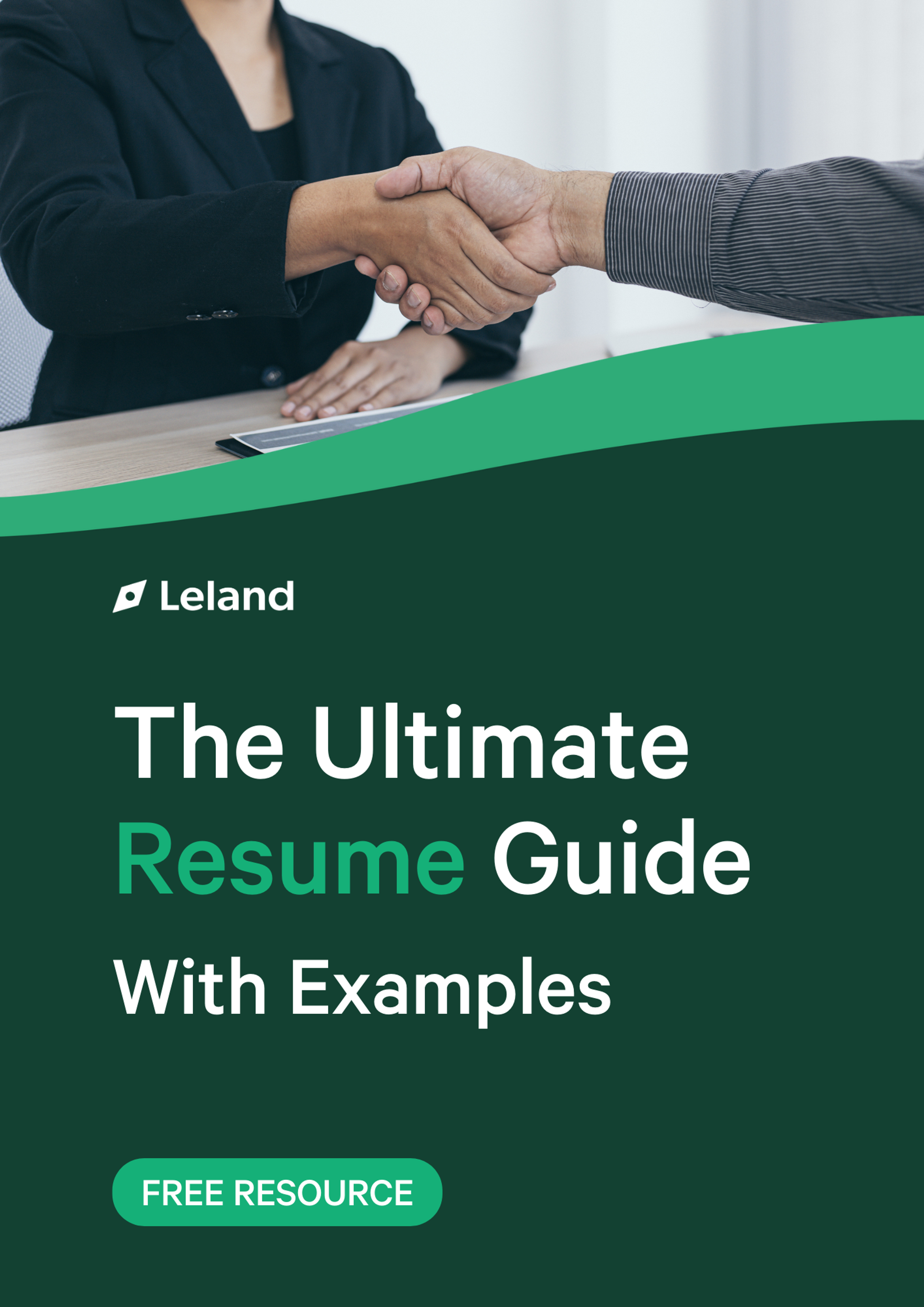
The Ultimate Resume Guide
Use our comprehensive resume guide with its management consulting-specific tips and examples to prep a standout resume and get your foot in the door at an MBB.
Boston Consulting Group
Quick Facts
- Founded: 1963
- Revenue: $8.6 Billion
- Employees: 22,000 (2020)
- Headquarters: Boston, MA
- Global Presence: 90 cities in over 50 countries
What Makes BCG Unique?
More so than the other top consulting firms, BCG is known for its emphasis on giving back to the community and it is very involved in social justice, community service, and other similar initiatives. Several times a year, BCG designates a day for community service days on which it asks its employees to serve their local communities.
Mentorship and leadership development are also very important. Associates will receive a lot of support and resources from higher-level employees, and this starts before they even join the firm. Employees are encouraged to interact with others from all levels and offices of the firm, for personal support, mentorship, help with a case, and anything else. BCG is well-known for cultivating this collaborative atmosphere.
BCG Industries
- Aerospace and Defense
- Automotive
- Biopharma
- Building Materials Industry
- Consumer Products Industry
- Education
- Financial Institutions
- Healthcare
- Industrial Goods
- Infrastructure
- Insurance
- Media Industry
- Medical Devices and Technology
- Metals and Mining Industry
- Oil and Gas
- Power and Utilities
- Principal Investors and Private Equity
- Public Sector
- Retail
- Technology, Media, and Telecommunications
- Transportation and Logistics
- Travel and Tourism
BCG Office Locations
- Boston
- New York
- Dallas
- Chicago
- Atlanta
- San Francisco
- Seattle
- Abu Dhabi
- Berlin
- London
- Sao Paulo
- Beijing
- Casablanca
- and more…

Expert Insight
“BCG values individualism. There is a TON of diversity at BCG, in terms of race and gender but also in terms of geographic/educational/socioeconomic background, working style, personality type, and more. BCG does this extremely intentionally and really tries to emphasize that diversity and steer into it, pushing for people to bring their full self to work and to design the job in a way that will work for them (which manifests itself in things like project choice.
For example, my case gives me a couple of hours every night blocked off for bedtime with my kids. There is also a wide presence of strong, active affinity groups. Furthermore, BCG has a big system in place, known as PTO (predictability, teaming, and open communication), to improve project life with things like weekly surveys and anonymous interviews with a third-party “coach” where every team member can provide feedback on project sustainability, team norms, or anything else that could help improve a project. Obviously, consulting can be demanding and so I really wanted a place that actively sought to make case life sustainable.”
- David O., BCG Consultant, Ex-LEK, Kellogg MBA
Interviewing at BCG
According to a new hire at BCG, here is what the recruiting process consists of:
- Pre-interview: Application (resume and cover letter) + Pymetrics (AI assessment tool) test
- Round 1 interview: Online case (case robot) and 30/45-minute behavioral interview (usually live on Zoom)
- Round 2 interview: Two live interviews (usually on Zoom) — the first 30 minutes being a case and the last 15 minutes being behavioral
As an FYI, BCG tends to put a greater emphasis on charts and graphs, so make sure your quantitative and data analysis skills are polished.
Here are a few other tips for nailing your BCG interviews:
Tips for Success
1. Don’t reiterate your resume.
As part of the behavioral portion, the interviewer will ask you about your background, ambitions, and motivations for trying to get into consulting. As you explain your previous experience, don’t simply restate what the recruiter can already see. Instead, use it as an opportunity to share more experiences that demonstrate your skills and capabilities.
2. Get to know the office that you want to work at.
More so than some of the other firms, BCG tries to build a cohesive office culture. As such, an applicant’s fit with BCG will depend heavily on the office they’re applying to. Take time to understand what makes the offices different by doing coffee chats with the people that work there, conducting your own research, and thinking about which one is best for you.
3. Own your unique skills and strengths.
As mentioned above, BCG prides itself on actively building a diverse environment. This doesn’t mean that you need to come from an unconventional background; it does, however, mean that you need to understand what you bring to the table and be able to articulate it to the interviewer.
4. Learn to thrive in uncertainty.
In the final rounds of interviews at BCG, it’s not uncommon to be given a brain teaser or twist to measure your ability to think creatively. In doing so, the interviewer is trying to see how you do in uncertainty. Expect this so that when it happens, you’ll know how to navigate it based on the frameworks and cases that you’ve practiced.
5. Be creative.
BCG deeply values creativity — both in terms of solving each case in a creative way and in how candidates approach cases.
Interview Tips from a Top Leland Coach
Also, make sure to check out these essential interview tips directly from Leland Coach Nick V.:
"As BCG has implemented technology into its application process over the last two years, including the Pymetrics behavioral test and the online case with a chatbot, many candidates have been unsure how to prepare. After my personal experience in the first year of these post-COVID interviews and subsequent experience mentoring a dozen BCG interviewees in 2021, a few best practices have emerged:
Pymetrics
- Don’t stress too hard about preparing for this — it’s a simple, logic-based, adaptive test of your responses in timed situations. Just get a good night’s sleep and be ready with good wifi.
- Don’t take too many risks on the test. Just keep that in mind going into your Pymetrics. A couple applicants who got offers at McKinsey and Bain didn’t get BCG interviews because their results showed they were too willing to take risks.
Online Case
- Practice all the “live” case interview skills — they are directly transferable. For example, choosing the 3 most important buckets to consider for a case becomes a multiple-choice question.
- Practice case interview algebra (esp. profitability) WITHOUT a case interviewer. Get used to typing in an answer to a black box and not knowing if it is correct.
- Record yourself summarizing recommendations in 1 minute or less (you’ll be videoed at the end of the case for this) and watch how you speak and sound."
- Nick V., Expert Consultant for Aspiring Consultants
Example Interview Questions
- Why do you want to pursue a career in consulting?
- Tell me about a time when you led your team to an extraordinary achievement.
- Tell me about a time that you worked on a team.
- Tell me about a failure and what you learned from it.
Expert Advice

“One thing I like to share with prospective candidates is that as compared to other firms, BCG has a unique organizational structure. They like to take an academic approach to problem-solving, which is reflected in their hiring - they often hire PhDs and have relatively few Associates (post-college entry-level positions). This leads to a really interesting culture and is a great opportunity for Associates. Since there are fewer of them compared to other firms, they are given outsized responsibility. There is also less pressure around getting promoted from Associate to Consultant, and there are many great resources for business school applications.”
- Neha S., BCG Consultant, Facebook/Meta PM, HBS MBA
Applying to BCG? Read this next: How to Get a Job at BCG--Interviewing and Networking Tips
Bain & Company
Quick Facts
- Founded: 1973
- Revenue: $4.5 Billion
- Employees: 10,500
- Headquarters: Boston, MA
- Global Presence: 65 offices in 40 countries
What Makes Bain & Co. Unique?
Bain & Co. is the youngest and smallest of the MBB firms, but it makes up for this with innovative processes, high-risk and high-impact initiatives, and an emphasis on results rather than reports. Bain has implemented its clients’ results into its fee structure in order to make sure that delivering success is prioritized.
Bain runs on a local staffing model unlike BCG (regional model) and McKinsey (global model). It does so for several reasons, including minimizing unnecessary travel, promoting mentorship and apprenticeship programs, and fostering office cultures unique to each location.
There are more associate consultants (ACs) than consultants at Bain (a “triangle model”) which is different from BCG and McKinsey which operate more on a diamond model (fewer ACs, more consultants). Bain emphasizes that hiring and promotions are based on a meritocracy; in fact, ACs at Bain & Company often have the opportunity to be directly promoted to consultant after three years, without needing to get an MBA.
Mentorship is taken very seriously at Bain. Instead of being assigned a mentor, new associates are allowed to choose who they’d like to coach them. In addition, Bain provides a budget for building the mentor relationship with activities.
Finally, Bain has non-profit consulting and private equity branches that attract many applicants. The Private Equity Group (PEG) is a designated team that does due diligence services for big funds. Bainies can rotate in and out, getting exposure to private equity and setting themselves up for more competitive exit opportunities.
Pro tip: make sure you write a strong cover letter when applying to Bain! A recruiter there let us know that they are essential to landing the interview.
Bain & Company Office Locations
- Boston
- Atlanta
- Chicago
- Los Angeles
- New York
- Rio de Janeiro
- Washington, DC
- Istanbul
- Johannesburg
- Rome
- Zurich
- Dubai
- Riyadh
- Bangkok
- Mumbai
- Seoul
- and more…
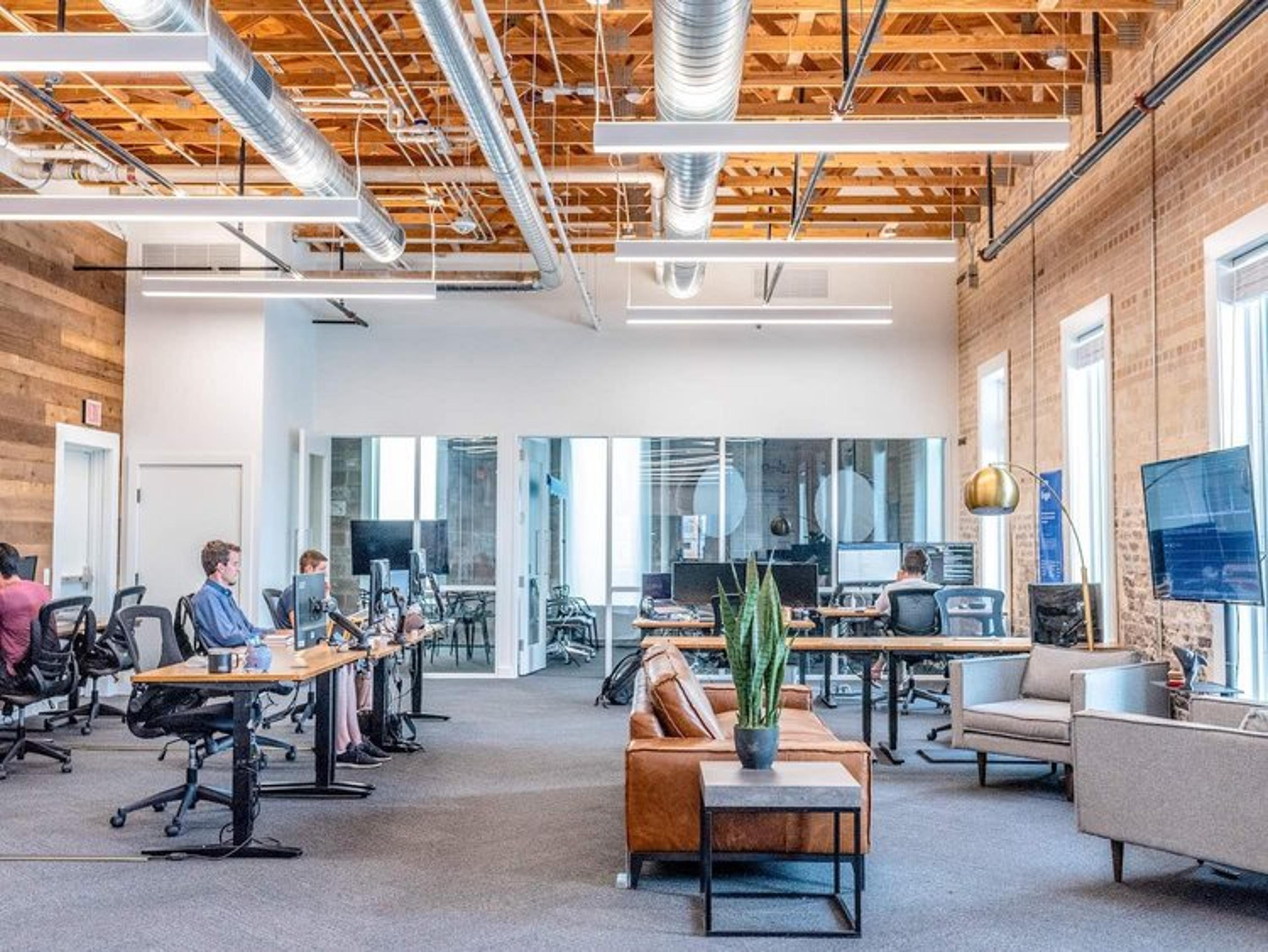
Bain & Company Industries
- Advanced Manufacturing & Services
- Aerospace, Defense, and Government Services
- Agribusiness
- Aviation
- Automotive and Mobility
- Chemicals
- Consumer Products
- Energy and Natural Resources
- Financial Services
- Forest Products, Paper, and Packaging
- Healthcare
- Infrastructure, Construction, and Building Products
- Machinery and Equipment
- Media and Entertainment
- Metals
- Mining
- Oil & Gas
- Private Equity
- Retail
- Social and Public Sector
- Technology
- Telecommunications
- Transportation
- Utilities and Renewables
Interviewing at Bain & Company
The Bain Head of Consultant Recruiting outlined what the firm primarily looks for during interviews and it includes problem-solving skills, an ability to lead, delivery of results, and passion. When brainstorming personal experiences to share, think through how they fit into these characteristics. Like the other firms, Bain requires a behavioral/fit interview, case interview, and potentially a written case interview. Written case interviews are mainly used in the US, UK, and Russia and are longer cases in which the applicant is given 90 minutes to do an analysis on a 20-page document and will then present five slides to the interviewer.
Opposite of Mckinsey, Bain & Company case interviews are primarily candidate-led, meaning the applicant is expected to present their framework and walk the interviewer through what they believe to be the correct next steps. You should step into a leading role, taking the initiative and suggesting the next steps. Also, don’t be afraid to ask for data. If it isn’t available, the interviewer will simply tell you that. Interviews will ask a market sizing question and you will need to make several assumptions and estimates to solve it.
Tips for Success
1. Network, network, network.
The recruiting team talks to each other and it’s important to make sure that the people who will be reviewing your application know who you are. Get a warm intro and do practice cases. However, don’t ping all the Bainies at once, especially with the same template letter.
2. Start early.
When recruiting season rolls around, the associate consultants will already have the cohort of students/recruits that they’re working with and probably won’t have much time to meet and get to know new people. For this reason, start reaching out, doing practice cases, and building relationships with Bainies early on–months before the recruiting kicks into high gear.
3. Practice the most common types of Bain & Company cases and use frameworks.
Bain uses three kinds of case interviews much more than others: profitability, market-entry, and merger and acquisition cases. So, before interviewing for Bain, make sure you have a deep understanding of how to succeed in these types of cases. Frameworks can help with this by providing a structure that can break down more complex problems into digestible components. Also, it will make sure that you are organized at a high level before you dive into the details.
4. Treat the case interview as a real-life scenario.
Many of the cases used in Bain & Company's interviews are actual cases that past consultants have faced. When going through the case, don’t be afraid to make real-life connections. Maybe you saw an article about the industry you’re working in, or read a report on a recent related trend. Doing this shows the interviewer that you are cognizant of the effect that these cases have and their relevance to everyday life.
Advice from a Coach: Bain Networking and Recruiting
At Bain, it’s not about how good you look on paper. It’s about Bain placing bets on the most likely candidates to crush the interviews and accept the offer. What does this mean for you? Well, start networking and casing with employees BEFORE the gamut of students begins reaching out to the Associate Consultants. That means you should start at the beginning of May or June and have a cadence of cases every three or four weeks or so. Focus on improving your case interview skills and ask deeper and deeper questions about Bain. If you’re staggering case interviews with ACs, then you may be able to get one every week.
Also, don’t underestimate the importance of networking. Though everyone may tell you that a networking call or practice case interview is non-evaluative, from June on, that is a bald-faced lie. ACs are absolutely rating candidates. For the first networking chat of the summer, it’s best if you have a warm lead. That can come from your consulting club presidency connecting you with Bainies in an email, from students on campus that have gotten offers, or from friends that are also recruiting.
Here are a few of the common pitfalls that I’ve seen applicants run into.
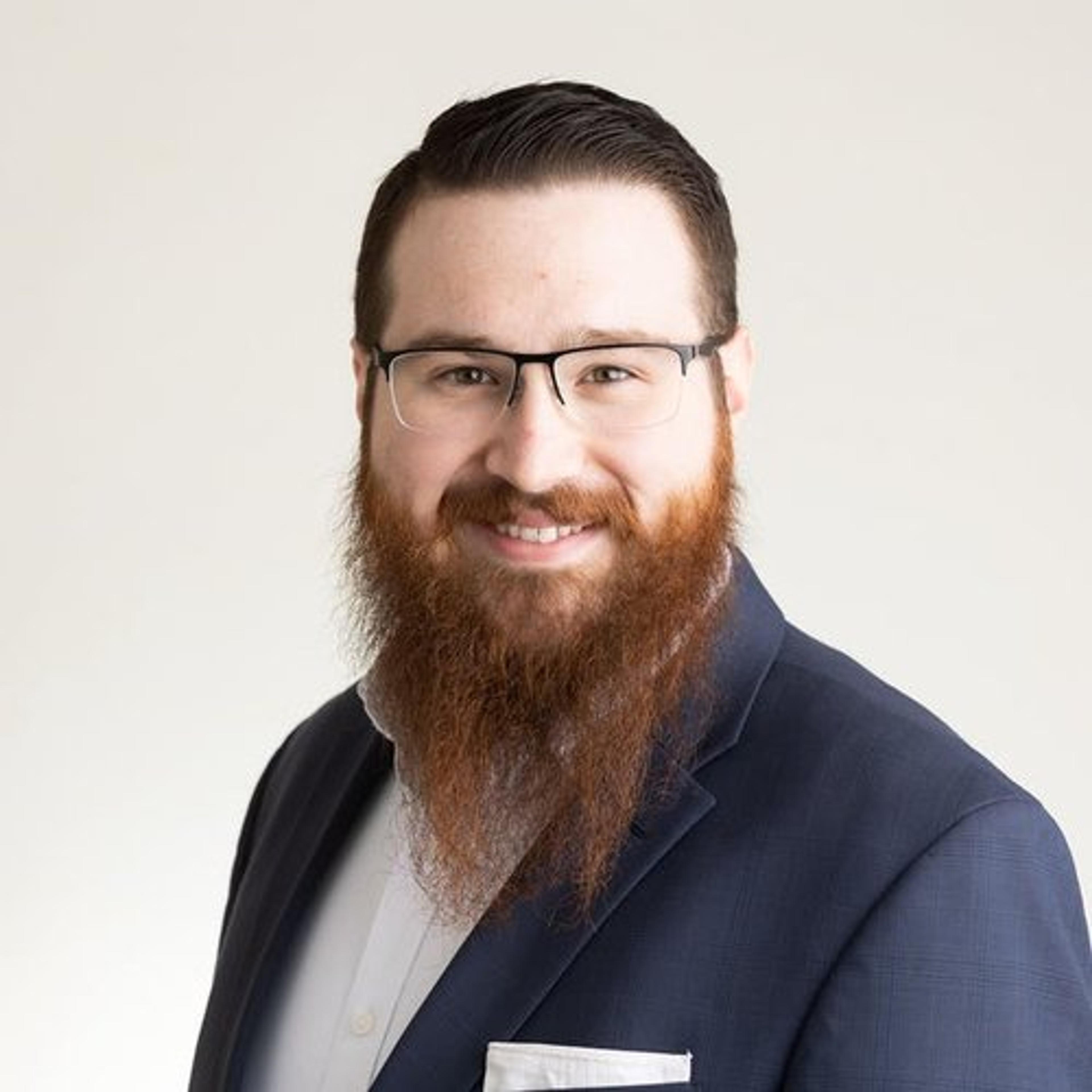
1. Pinging all the Bainies at once, asking for time
Look, we talk. ACs have a team chat. If we get the same template letter asking for time, we will probably still give it to you, but it’s not the best route. Better to get warm intros and stagger, ESPECIALLY if one AC refers you to another Bainie.
2. The airport test
Every Bainie knows this rule, and it is this: “If you are stuck in an airport for eight hours with this person, are you going to enjoy that time or go crazy?” So don’t be a goober. Social grace, proper grooming, being thankful, etc. are all super important in a client-facing job, and the decision-makers can tell. I’ve told the school team to exclude students (even “dude” friends) that wouldn’t pass the airport test.
3. Not beginning early enough
Every AC has their cohort of students they are working with, and when August rolls around, not only are we knee-deep in client work (as new Bainies have been coming on and we need to train them) but we also get a ton of in-bounds to practice cases with. If it truly is your first time hearing about consulting (and you’re a ringer) then you get a pass, but otherwise, we simply don’t have the time to case with you.
4. Not attending on-campus events
Odds are that all the interactions have been virtual so far in the summer. This is normal and fine. But when Bain is on campus, go to the events and introduce yourself in person! Make sure they see your face, smile, and banter a bit. That personal connection is helpful.
- John K., Former Senior Associate Consultant at Bain & Co and Member of the Recruiting Team.,
Example Interview Questions
- What is a difficult decision that you’ve made in the past year?
- Tell me about a time when you changed the direction of a team.
- What is an example of a time that you showed initiative and leadership?
- What experience are you most proud of?
Expert Advice

“I loved working at Bain! Bain really embodies what people development means - and genuinely tries their best as a firm to help you reach your goals. During my time with Bain, I've done externships, office transfers, and an MBA - and the process each time has been as smooth as I can hope for. I've also always felt that everyone, from staffing to managers to mentors, cared about my needs and goals and was always there to provide guidance and support whenever I needed it.”
- Jaye Z., Bain & Co. in Singapore, GSB MBA, VC and Startups
Applying to Bain & Company? Here are some other resources to help you as you navigate the application process, written by our expert management consulting coaches:
- How a Disneyland Churro Helped Me Land a Job at Bain (and 5 Pitfalls to Avoid in Market Sizing Problems)
- How to Get an Interview at Bain & Co.
Bonus: Writing a Compelling Consulting Resume
The first screening step that all firms take to filter out applicants is a resume (and for some companies, a cover letter) review. For this reason, it’s extremely important to have a polished resume that highlights your achievements, showcases strong skills, and makes a compelling case for your candidacy. As you edit your resume, keep these tips in mind:
Consulting Resume Tips
1. Minimize white space, but don’t go overboard.
Consulting resumes tend to have less white space than other corporate resumes. Consultants are used to seeing lots of data and they expect to see your impact on a resume. Don’t go overboard by filling every possible space, but also don’t be afraid to add details. Don’t use a font size smaller than 10 pt. and keep your resume to one page, full stop.
2. Organize your resume in a professional, clear structure.
If you are a university hire, your resume should be organized into the following buckets (in order): first, education; second, professional experience; third, leadership and/or service experience; and fourth, personal and/or any additional information. Generally, it’s logical to put the experiences in reverse chronological order. Then, add bullet points based on relevance and impressiveness. If you are an experienced hire, your experience section should come first (instead of education).
3. Quantify, quantify, quantify.
While having a recognizable company will definitely add some prestige and validation to your resume, the most important thing that you can do is to show how you made an impact by quantifying your experiences. Doing so will show both that you are results-oriented (very important for consulting) and that you made a difference. For example, did you “increase revenue by x amount” or “cut operations costs by x%”? Also, focus on the outcomes unique to you, instead of points that anyone at the company could have said.
These tips came from Leland Coach Camden R., an HBS MBA Candidate, and former McKinsey Consultant:
1. Show lasting impact: Consulting is all about creating a lasting impact for clients. Consulting firms want to see how you have driven impact at your school, in your work, and in leadership positions.
2. Focus on unique outcomes: Don’t waste space describing what anyone in your role would have done. Focus instead on unique outcomes that you enabled. Talk about what you did, how you did it, and the impact you achieved.
3. Include who you are as a person: The resume should provide a view not just into what you’ve done, but also into who you are as a person, including your background, strengths, and interests.
4. Prioritize your experiences: Prioritize the experiences you include. Depth is more valuable than breadth, so do not include every job you have ever had.
5. Share unique experiences: In your Leadership, Skills & Interests section, share truly unique experiences about what you have done and/or enjoy.

The Ultimate Resume Guide — With Examples
Use our comprehensive resume guide with its management consulting-specific tips and examples to prep a standout resume
Example Consulting Resume
This resume was provided by one of our experts for his role as an Associate Consultant at Bain & Co. Notice how every point is quantified and the impact he specifically made is apparent. Also, from reading the resume you get a peak of not just who he is professionally, but also as a person. This is important because the firms are not hiring a robot; they’re hiring someone who will be client-facing and needs a personality, not just a brain.
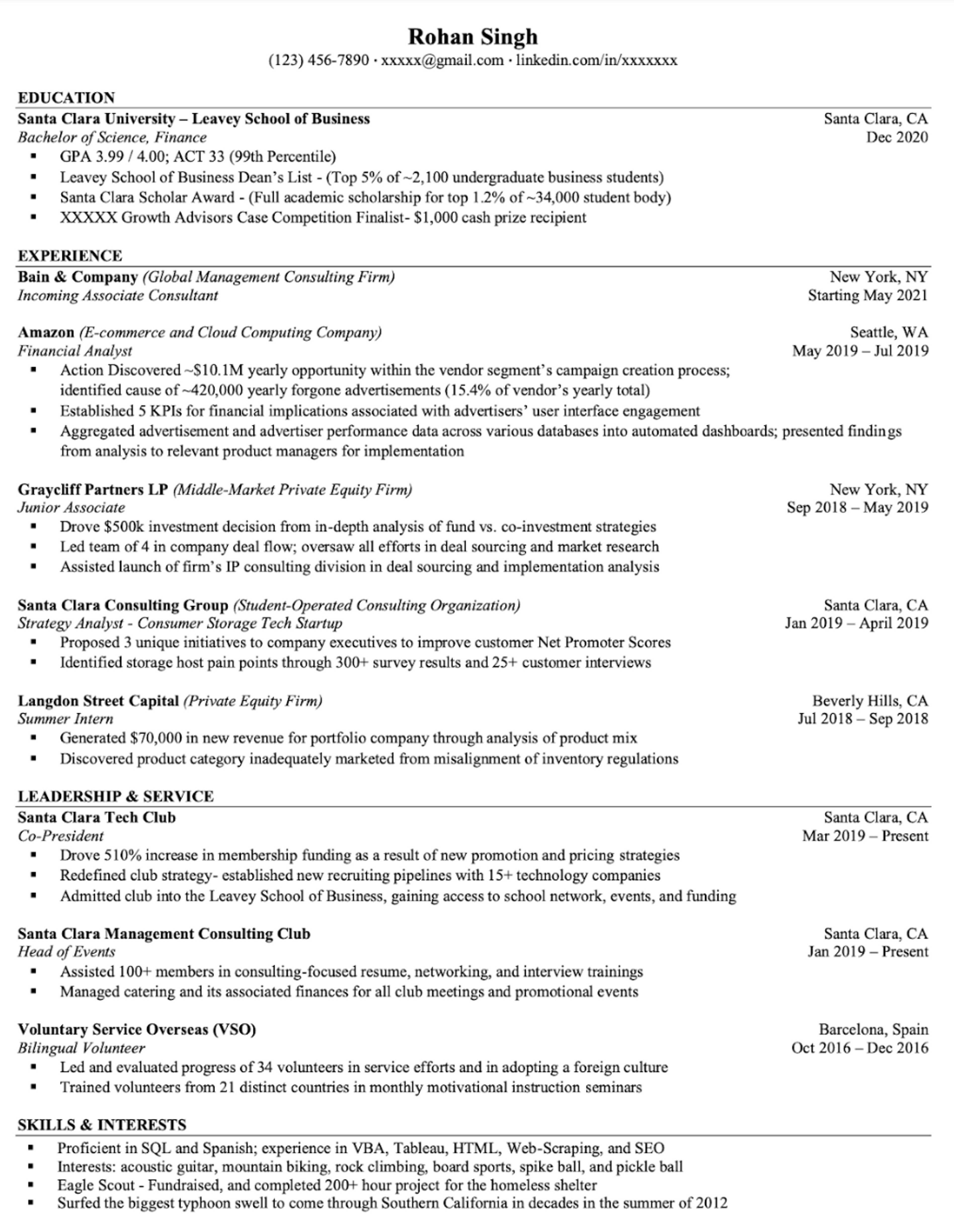
Land a Consulting Job With the Help of an Expert
Applying to consulting jobs can be daunting, but Leland is here to support you every step of the way. Here are several other articles to get you started:
- Five Tips for Breaking Into Management Consulting
- A Day in the Life of a Management Consultant
- Best 30 Free Resources to Get Into Management Consulting
- Top MBA Programs for a Career in Consulting
- What to Major in for Consulting
- How to Network for Management Consulting
For one-on-one, personalized guidance, work with one of our expert coaches who can advise you on consulting firms, run mock interviews, review your resume, and much more. See them all here.




